- Home
- Frank Herbert
The Green Brain (v4.0) Page 12
The Green Brain (v4.0) Read online
Page 12
Vierho, Joao thought. Thome . . . Ramon . . .
Tears blurred his eyes.
"Oh, God!" Rhin said.
"God; hah!" Chen-Lhu barked. "Another name for the movement of fate!"
Rhin buried her face in her hands. She felt that she was up for try-out in some cosmic drama, without script or rehearsal, without words or music, without knowing her role.
God is a Brazilian, Joao thought, calling to mind his nation's old expression of self confidence touched by fear. At night, God corrects the errors Brazilians make during the day.
What was it Vierho had always said. "Believe in the Virgin and run."
Joao felt a sprayrifle across his lap, the metal cold against his hands.
I couldn't have helped them, he thought. The range was too great.
VII
"You said the vehicle would not fly!" the Brain accused.
Its sensors probed the messenger pattern on the cave ceiling, listened for the afferent hum that might expand the meaning. But the configuration revealed on the ceiling by the phosphor-light of servant insects remained firm, as steady as the patch of stars standing in the cave-mouth beyond the messengers.
Chemical demands pulsed through the Brain, sending its servant nurses into a frenzy of ministrations. This was the closest to consternation the Brain had ever experienced. Its logical awareness labeled the experience as an emotion and sought parallel references even while it worked on the substance of the report.
The vehicle few only a short distance and landed on the river. It remains on the river with its thrusting force dormant.
But it can fly!
The first serious doubt of its information entered the Brain's computations then. The experience was a form of alienation from the creations which had created it.
"The claim that the vehicle would not fly came directly from the humans," the messengers danced. "Their assessment was reported."
It was a pragmatic statement, more to fill out the report predicting the escape try than to defend against the Brain's accusation.
That fact should have been part of the original report, the Brain thought. The messengers must be taught not to intervene, but report all details complete with weight-by-source. But how can this be done? They're creatures of firm reflex and tied to a self limiting system.
Obviously new messengers would have to be designed and bred.
With this thought, the Brain moved even further from its creators. It understood then how an action-of-mimicry, a pure reflex, gave birth to itself, but the Brain, the thing-produced-by-reflex, was having an inevitable feedback effect, changing the original reflexes which had created it.
"What must be done about the vehicle on the river?" the messengers asked.
With its new insight, the Brain saw how this question had been produced -- out of survival reflex.
Survival must be served, it thought.
"The vehicle will be allowed to proceed temporarily," the Brain ordered. "There must be no visible sign of molestation for the time being, but we must prepare safeguards. A cluster of the new little-deadlies will be conveyed to the vehicle under the cover of night. They must be instructed to infiltrate every available hole on the vehicle and remain in hiding. They must not take action against the occupants of the vehicle without orders! But they must stand ready to destroy the occupants whenever necessary."
The Brain fell silent then, secure in the knowledge that its orders would be carried out. And it took up its new understanding to examine as though this were an autonomous fragment. The experiment was both fascinating and terrifying because here, living within its single-self, was an element capable of debate and separate action.
Decisions -- conscious decisions, the Brain thought, these are a punishment inflicted upon the single-self by consciousness. There are conscious decisions that can fragment the single-self. How can humans stand up under such a load of decisions?
Chen-Lhu tipped his head back, resting in the corner between the window and rear bulkhead, stared up at the melon-curve of moon lifting across the sky. The moon was the color of molten copper.
An acid-etched frost line ran diagonally down the window to the faired curve of exterior skin. Chen-Lhu's eyes followed the line and, for a moment as he stared at the place where the window ended beside him, he thought he saw a row of tiny dots, like barely visible gnats marching across the window.
In an eyeblink, they vanished. Did I imagine them? he wondered. He thought of alerting the others, but Rhin had been near hysteria for almost an hour now since witnessing the death of their camp. She'd have to be nursed back to usefulness.
I could've imagined them, Chen-Lhu thought. Only the moon for illumination -- spots in front of my eyes; nothing unusual about that.
The river had narrowed here to no more than six or seven times the pod's wingspan. A shadowy wall of overhanging trees hemmed in the track of water.
"Johnny, turn on the wing lights for a few minutes," Chen-Lhu said.
"Why?"
"They'll see us if we do," Rhin said.
She heard the almost-hysteria in her own voice and was shocked by it. I'm an entomologist, she told herself. Whatever's out there, it's just a variation on something familiar.
But this reasoning lacked comfort. She realized that some primal fear had touched her, arousing instincts with which reason could not contend.
"Make no mistake," Chen-Lhu said, and he tried to speak softly, reasonably. "Whatever overwhelmed our friends . . . it knows where we are. I merely wish the light to confirm a suspicion."
"Are we being followed, eh?" Joao asked.
He snapped on the wing lights. The sudden glare picked out two caverns of brilliance that filled with fluttering, darting insects -- a white-winged mob.
The current swung the pod around a bend. Their lights touched the river bank, outlined twisting medusa roots that clutched dark red clay, then swung with the vagaries of an eddy to pick out a narrow island -- tall reeds and grass bending to the current, and the cold green reflections of eyes just above the water.
Joao snapped off the lights.
In the abrupt darkness, they heard the whining hum of insects and the metallic chime calls of river frogs . . . then, like a delayed comment, the coughing barks of a troop of red monkeys somewhere on the right shore.
The presence of the frogs and monkeys, Joao felt, carried a significance that he should understand. The significance eluded him.
Ahead, he could see bats flicker across the moonlit river, skimming the water to drink.
"They're following us . . . watching, waiting," Rhin said.
Bats, monkeys, frogs, all living intimately with the river, Joao thought. But Rhin said the river carried poisons. Was there reason to lie about that?
He tried to study her face in the dim reflections of moonlight that penetrated the cabin, but received only the impression of gaunt, withdrawn shadows.
"I think we are safe," Chen-Lhu said, "as long as we keep the cabin sealed and get our air through the vent filters."
"Open only in daylight," Joao said. "We can see what's around us then and use our rifles if we need to."
Rhin pressed her lips together to prevent them from trembling. She tipped her head back, looked up through the transparent strip across the roof of the cabin. A wilderness of stars flooded the sky, and when she lowered her gaze she could still see the stars -- a shimmer of points, tremulous on the river surface. Quite suddenly the night filled her with a sensation of immense loneliness that was at the same time oppressive, holding her locked between the river's jungle walls.
The night was odorous with jungle smells that the vent filters could not remove. Every breath was thick with baited and repelling perfumes.
The jungle took on a form of conscious malignancy in her imagination. She sensed something out there in the night -- a thinking entity which could swallow her without a moment's hesitation. The sense of reality with which her mind invested this image flowed over her and through her. She c
ould give it no shape except immensity . . . but it was there.
"Johnny, how fast is the current along here?" Chen-Lhu asked.
Good question, Joao thought.
He bent forward to peer at the luminous dial of the altimeter. "Elevation here's eight hundred and thirty meters," he said. "If I've located us correctly on the right river, the channel drops about seventy meters in the next thirty kilometers." He worked the equation in his head. "I can only approximate, of course, but it'll be a six to eight knot current."
"Won't there be a search for us?" Rhin asked. "I keep thinking . . ."
"Don't think that way," Chen-Lhu said. "Any search, if it comes at all, will be for me -- and not for several weeks. I knew where to look for you, Rhin." He hesitated, wondering if he was saying too much, giving Joao too many clues. "Only a few of my aides knew where I was going, and why."
Chen-Lhu hoped she'd hear the secrecy in his voice, get off this subject.
"You know how I got in here," Joao said. "If anybody thought to look for me . . . where'd they look?"
"But there's a chance, isn't there?" Rhin asked. Her voice revealed how desperately she wanted to believe in that chance.
"There is always a chance," Chen-Lhu said. And he thought: You must calm yourself, Rhin. When I need you, there must be no problems of fear and hysteria.
He set his mind then to the way Joao Martinho must be discredited if they reached civilization. Rhin's help would have to be enlisted in this enterprise, of course. Joao was the perfect scapegoat and this situation was made to order -- if Rhin could be persuaded to help. Naturally, if she proved obstinate, she could be eliminated.
***
Midnight came to the cave above the river chasm before the Brain received its next report on the three humans and their floating vehicle.
Most of the conversation reported by the dancing messengers revealed only the tensions and pressures of the humans' circumstances. The humans realized, at least unconsciously, that they were in a loose trap. Most of this conversation could be set aside for later evaluation, but there was one matter for the Brain's immediate attention. The Brain felt something approaching chagrin that it had not anticipated this problem with its own logic.
"Enough action groups must be dispatched at once," the Brain ordered, "to accompany the vehicle but stay out of sight in the adjoining growth. These action groups must be ready to fly over the river whenever needed and hide the vehicle from any searchers or chance passersby in the sky above them."
***
One of the pod's stub wings brushed vines along the shore, awakening Joao from a light doze. He glanced back through the gloom to see Chen-Lhu alert and staring.
"It is time for you to awake and take your watch," Chen-Lhu said. "Rhin still sleeps."
"Have we been touching the shore very much like that?" Joao whispered.
"Not much."
"I should put out that sea anchor . . . Vierho made."
"That would not prevent us touching the shores. And it might snag on something and delay us."
"Padre covered the hooks on the grapnel. I don't think it'll snag. Wind's upriver right now, will be until morning. A drag in the water like that could speed us up."
"But how will you put it out there?"
"Yeah . . ." Joao nodded. "Better wait until morning."
"It would be best, Johnny."
Rhin stirred restlessly.
Joao snapped on the winglights. Twin shafts of illumination leaped out to the jungle wall, revealed a cluster of sago palms in front of a screen of cana brava. The lights began to siphon in two flows of fluttering, darting insects.
"Our friends are still with us," Che-Lhu whispered.
Joao turned off the lights.
Rhin began breathing in ragged gasps as though she were choking, Joao gripped her arm, spoke softly: "Are you all right?"
Without coming fully awake, Rhin felt his presence beside her, experienced a primitive demand for his protective masculinity. She nestled against him, murmured, "It's so hot. Doesn't it ever cool off?"
"She dreams," Chen-Lhu whispered.
"But it is hot," Joao said. He felt embarrassed by Rhin's obvious need for him, sensing that this amused and pleased Chen-Lhu.
"Towards morning we should get a little relief from the heat," Joao said. "Why don't you sleep for awhile, Travis?"
"Yes, I'll sleep now," Chen-Lhu said. He stretched out on the narrow gig-box, wondering: Will I have to kill them? They are such fools, Rhin and Johnny . . . so obviously attracted to each other, but fighting it.
The night breeze rocked the pod. Rhin nestled closer to Joao, breathing deeply, peacefully. Joao stared out the windows.
The moon had gone down behind the hills, leaving only starlight to block out dark shadows along both shores. The hypnotic flow of dim shapes filled Joao with drowsiness. He concentrated on staying awake, peered through the black, his senses strained to the limit.
There was only the movement of the river and a hesitant rocking motion from the breeze.
The night awakened in Joao a sense of mystery. This river was haunted, peopled by the ghosts of every passenger it had ever carried, and now . . . by another presence. He could feel this other presence. The night was hushed with it. Even the frogs were silent.
Something barked in the jungle to the left. And Joao suddenly thought he heard a nerve beat of log drums. Distant . . . very distant: a still-vibration more felt than heard. It was gone before he could be sure.
The Indians were all cleared out of the Red, he thought. Who could be using drums? I must've imagined it; my own pulse, that's what I heard.
He held himself still, listening, but there was only Chen-Lhu's breathing, deep and even, and a small sigh from Rhin.
The river widened and its current slowed.
An hour passed . . . another. Time seemed dragged out by the current. A weary loneliness filled Joao. The pod around them felt fragile, inadequate: a corrupt and impermanent thing. He wondered how he had trusted his fife to this machine high above the jungle when it was so vulnerable.
We'll never make it! he thought.
Chen-Lhu's voice, a low rumble, broke the silence: "This river, it is the Itacoasa, for sure, Johnny?"
"I'm reasonably certain of that," Joao whispered. "What is the nearest civilization?"
"The bandeirante staging area at Santa Maria de Grao
Cuyaba."
"Seven or eight hundred kilometers, eh?"
"More or less."
Rhin stirred in Joao's arms, and he felt himself responding to her femininity. He forced his mind to veer away from such thoughts, concentrated instead on the river ahead of them: a winding, twisting course with rapids and sunken limbs. It was a track menaced for its full length by that deadly presence which he sensed all around them. And there was one more peril he had not mentioned to the others: these waters abounded with cannibal fish, piranha.
"How many rapids ahead of us?" Chen-Lhu asked.
"I'm not sure," Joao said. "Eight or nine -- maybe more. It depends on the season and height of water."
"We will have to use the fuel, fly across the rapids."
"This thing won't stand many takeoffs and landings," Joao said. "That right hand float . . ."
"Vierho did a good job; it'll suffice."
"We hope."
"You have sad thoughts, Johnny. That is no way to face this venture. How long to this Santa Maria?"
"Six weeks, with luck. Are you thirsty?"
"Yes. How much water do we have?"
"Ten liters . . . and we have the little pot still if we need more."
Joao accepted a canteen from Chen-Lhu, drank deeply.
The water was warm and flat. He returned the canteen.
Far off, a night bird called, "Tuta! Tuta!" with a fluting voice.
"What was that?" Chen-Lhu hissed.
"A bird . . . nothing but a bird."
Joao sighed. The bird cry had filled him with foreboding, like an evil omen out
of his superstitious past. A flux of night sounds pulsed in his temples. He stared out into darkness, saw a sudden witch light of fireflies along the right shore, smelled the wind from the jungle like an exhalation of evil breath.
The near hopelessness of their position pressed in upon him. They stood at the edge of the rainy season, separated from any sanctuary by hundreds of kilometers of whirlpools and chasms. And they were the target of a cruel intelligence which used the jungle as a weapon.

 Direct Descent
Direct Descent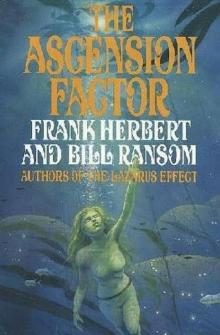 The Ascension Factor
The Ascension Factor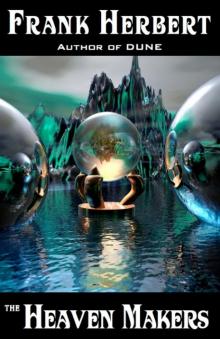 The Heaven Makers
The Heaven Makers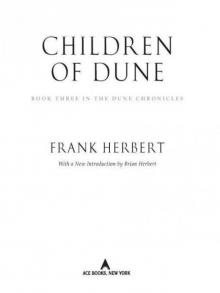 Children of Dune
Children of Dune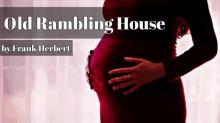 Old Rambling House
Old Rambling House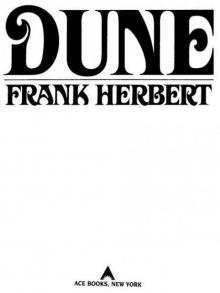 Dune
Dune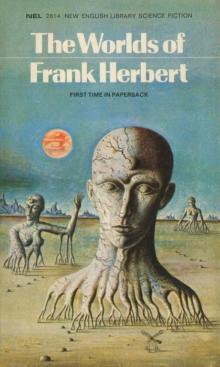 The Worlds of Frank Herbert
The Worlds of Frank Herbert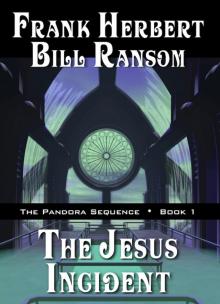 The Jesus Incident
The Jesus Incident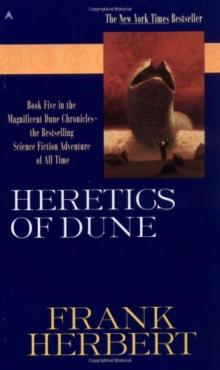 Heretics of Dune
Heretics of Dune Whipping Star
Whipping Star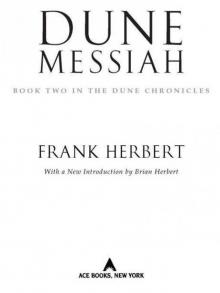 Dune Messiah
Dune Messiah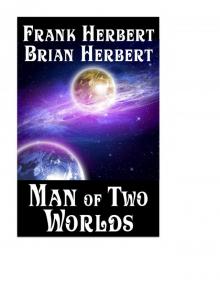 Man of Two Worlds
Man of Two Worlds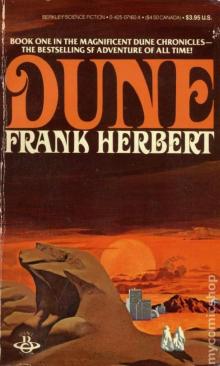 The Book of Frank Herbert
The Book of Frank Herbert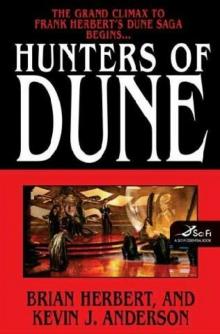 Hunters Of Dune
Hunters Of Dune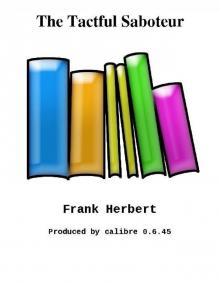 The Tactful Saboteur
The Tactful Saboteur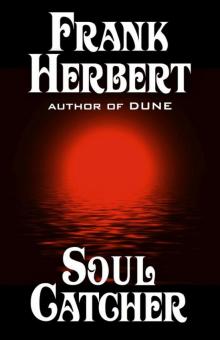 Soul Catcher
Soul Catcher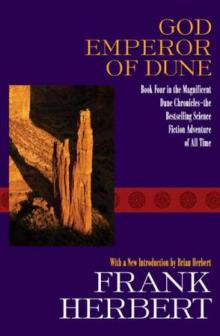 God Emperor of Dune
God Emperor of Dune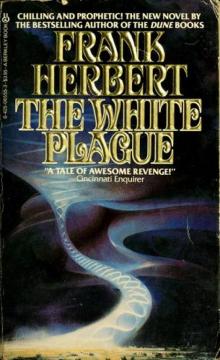 The White Plague
The White Plague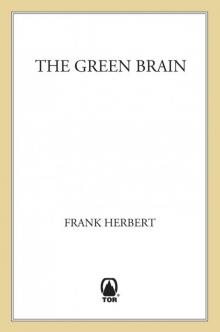 The Green Brain
The Green Brain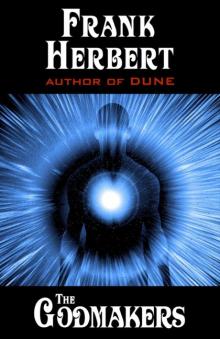 The Godmakers
The Godmakers Sandworms of Dune
Sandworms of Dune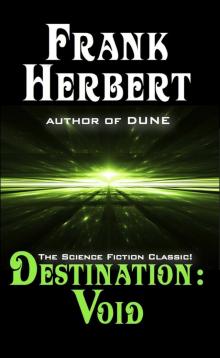 Destination Void
Destination Void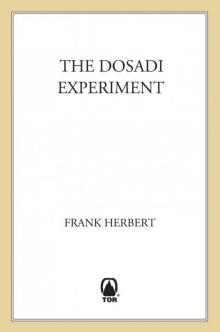 The Dosadi Experiment
The Dosadi Experiment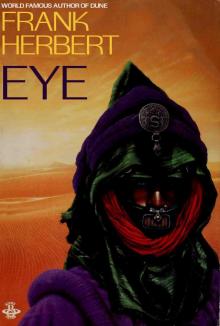 Eye
Eye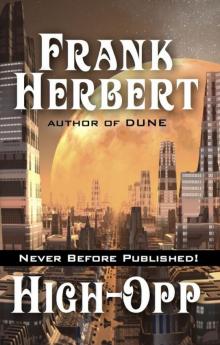 High-Opp
High-Opp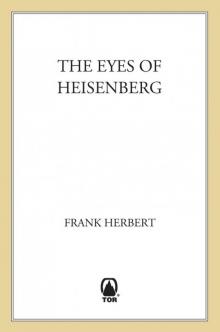 The Eyes of Heisenberg
The Eyes of Heisenberg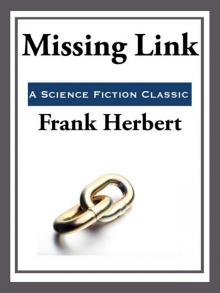 Missing Link
Missing Link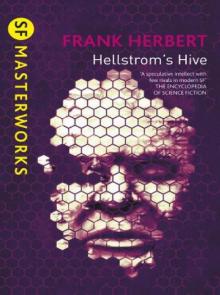 Hellstrom's Hive
Hellstrom's Hive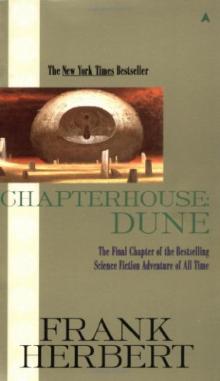 Chapterhouse: Dune
Chapterhouse: Dune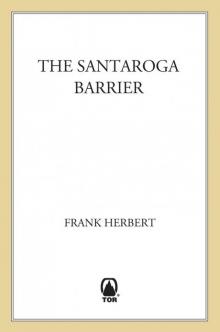 The Santaroga Barrier
The Santaroga Barrier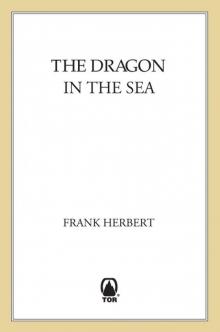 The Dragon in the Sea
The Dragon in the Sea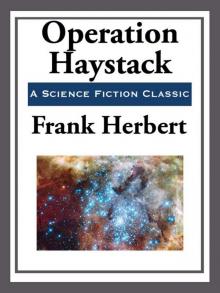 Operation Haystack
Operation Haystack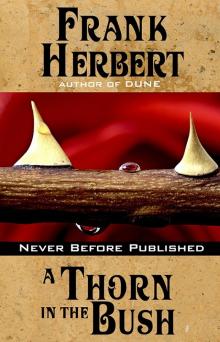 A Thorn in the Bush
A Thorn in the Bush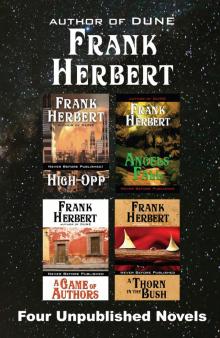 Four Unpublished Novels
Four Unpublished Novels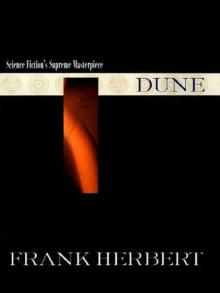 Dune dc-1
Dune dc-1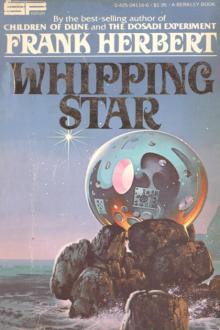 Jorj X. McKie 1 - Whipping Star
Jorj X. McKie 1 - Whipping Star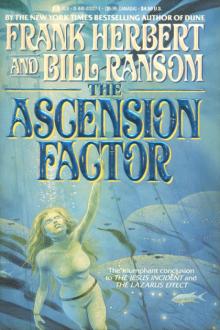 DV 4 - The Ascension Factor
DV 4 - The Ascension Factor Frank Herbert - Dune Book 4 - God Emperor Of Dune
Frank Herbert - Dune Book 4 - God Emperor Of Dune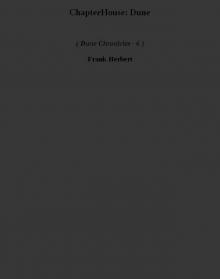 ChapterHouse: Dune dc-6
ChapterHouse: Dune dc-6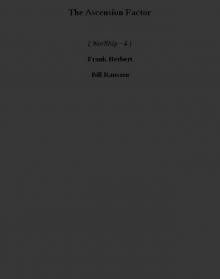 The Ascension Factor w-4
The Ascension Factor w-4 A Game of Authors
A Game of Authors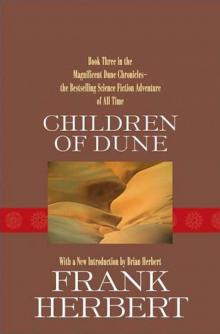 Children of Dune dc-3
Children of Dune dc-3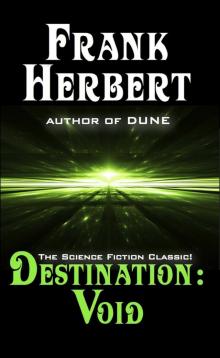 Destination: Void: Prequel to the Pandora Sequence
Destination: Void: Prequel to the Pandora Sequence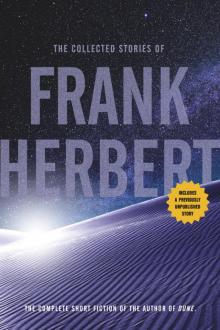 The Collected Stories of Frank Herbert
The Collected Stories of Frank Herbert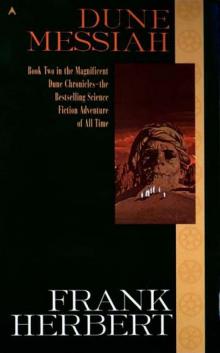 Dune Messiah dc-2
Dune Messiah dc-2 Frank Herbert - Dune Book 5 - Heretics of Dune
Frank Herbert - Dune Book 5 - Heretics of Dune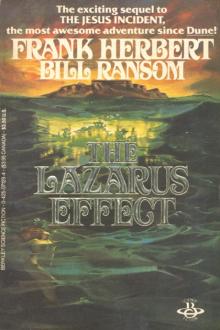 DV 3 - The Lazarus Effect
DV 3 - The Lazarus Effect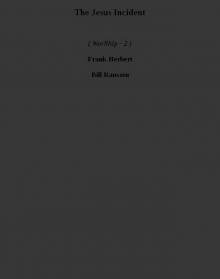 The Jesus Incident w-2
The Jesus Incident w-2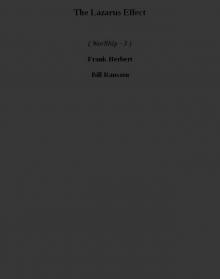 The Lazarus Effect w-3
The Lazarus Effect w-3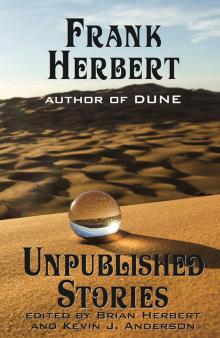 Frank Herbert
Frank Herbert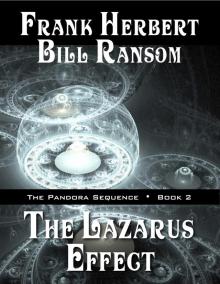 The Ascension Factor: Pandora Sequence
The Ascension Factor: Pandora Sequence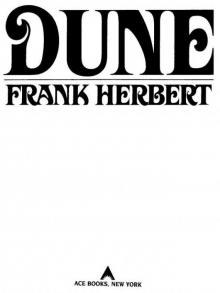 Dune (40th Anniversary Edition)
Dune (40th Anniversary Edition)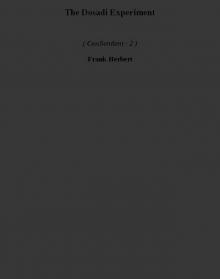 The Dosadi Experiment c-2
The Dosadi Experiment c-2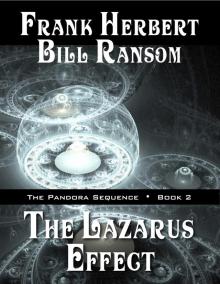 The Lazarus Effect
The Lazarus Effect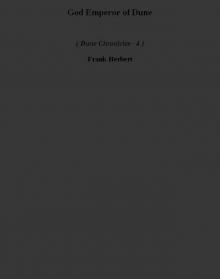 God Emperor of Dune dc-4
God Emperor of Dune dc-4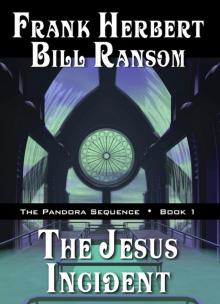 The Pandora Sequence: The Jesus Incident, the Lazarus Effect, the Ascension Factor
The Pandora Sequence: The Jesus Incident, the Lazarus Effect, the Ascension Factor The Green Brain (v4.0)
The Green Brain (v4.0) The Heaven Makers (v4.0)
The Heaven Makers (v4.0)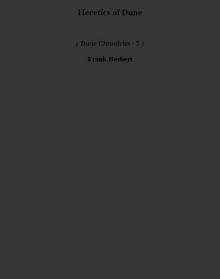 Heretics of Dune dc-5
Heretics of Dune dc-5